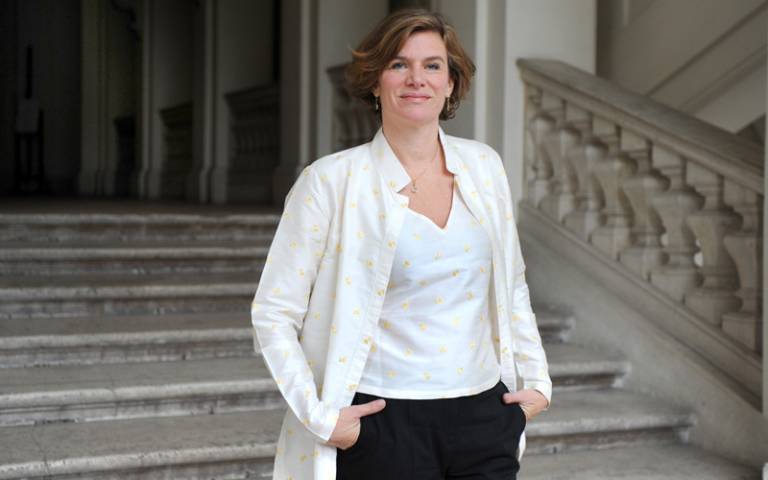Analysis: The success of the EU recovery fund will depend on bold missions
10 August 2020
Professor Mariana Mazzucato (UCL Institute for Innovation and Public Purpose) discusses how the European Council must include a green economy to recover from Covid-19 and details points in her 2018 cross-sector “mission oriented” policy framework, urging the council to be bold.

Two weeks ago, the European Council summit concluded with a historic agreement on a recovery fund. It represents a turning point for the EU: for the first time, the bloc will be allowed to borrow on behalf of its member states. The European Commission is now set to raise €750bn on capital markets, to be distributed through €390bn of grants to member states and €360bn of loans. This money is earmarked for the sole purpose of addressing the consequences of the Covid-19 pandemic.
Securing the agreement of 27 member states was not easy, and the outcome is far from perfect, but the real challenges are still to come. The commission must now resist pressure to slide back to doing business as usual. It must find ways to transform the European economy, making it greener, more inclusive and more resilient to future shocks. The risks of failing to do so are huge: the response to the 2008 financial crisis left the eurozone fractured and hindered economic recovery.
The most encouraging element of the agreement is that, rather than focusing on deficit reduction (as after the last crisis), the priority this time is on strategic investments in climate and digitalisation. The European Green Deal announced at the end of last year should indeed be the “compass” and “motor” for EU recovery. Harnessing technological innovations will also be vital: renewable energy and digital services are set to create millions of jobs.
Yet markets will not achieve this preparedness for a green and digital transition by themselves. Such a transformation will require the commission to set the direction and align EU policy with that of the member states. This does not mean micromanaging but it does mean aligning policies so they are coherent and foster transformational change.
In 2018, I proposed a “mission-oriented” policy framework to the EU’s Horizon innovation programme. Mission-oriented innovation means setting targets around existing challenges and then fostering bottom-up experimentation to meet them. This encourages long-term, ambitious thinking and new collaborations that lead to cross-sectoral innovation. Inspired by this work, the commission has chosen five big missions to frame part of the €90bn research programme for 2021-27. They are: conquering cancer; resilience and preparedness for climate change; healthy oceans and waters; climate-neutral cities; and soil health and food.
The mission model provides a strong framework for delivering recovery through the European Green Deal and for bringing citizens into the process. But, to be really effective, these targets must be taken up at the highest level — by the commission president’s cabinet. These missions must also be part of the blueprint for states as they align their industrial strategies, and their investment and procurement processes.
Within the commission, finances can be split into directly managed funds (spent by the commission) and shared management funds (spent by member states). If we are serious about redirecting our recovery and getting the most for our money, the former funds should be co-ordinated and aligned around the five missions. Spending shared management funds entails a more engaged and constructive conversation with member states. Those conversations are more effective and inclusive than the imposition of conditions, such as fiscal austerity or wage-decreasing structural reforms, which have been used in the past but can be self-defeating.
Another vital lever will be the European Investment Group, made up of the European Investment Bank, along with the European Investment Fund. The EIG has the expertise and scale to set direction in deploying equity-type financial instruments that are complementary to loans and guarantees. This is important for companies that are increasingly indebted in the crisis.
Financing the missions set by the commission will require a mixture of financial instruments to cater to various types of risk. The EIB needs to be less risk averse, while investing in analytical expertise and market intelligence to assess challenge-oriented investments based on future scenarios. It will also act as a co-manager of the InvestEU programme together with state investment banks and national promotional institutions.
The EU recovery programme has enormous potential to reinvigorate the European economy after the ravages of the Covid-19 pandemic. Setting bold missions at the heart of the recovery plan will go a long way to helping the commission and EU member states move on from a business-as-usual approach and towards a long-term, green and digital economic renewal.
This article was first published in the Financial Times on 9 August.
Links
- Professor Mariana Mazzucato’s academic profile
- UCL Institute for Innovation and Public Purpose
- UCL Faculty of the Built Environment
 Close
Close

